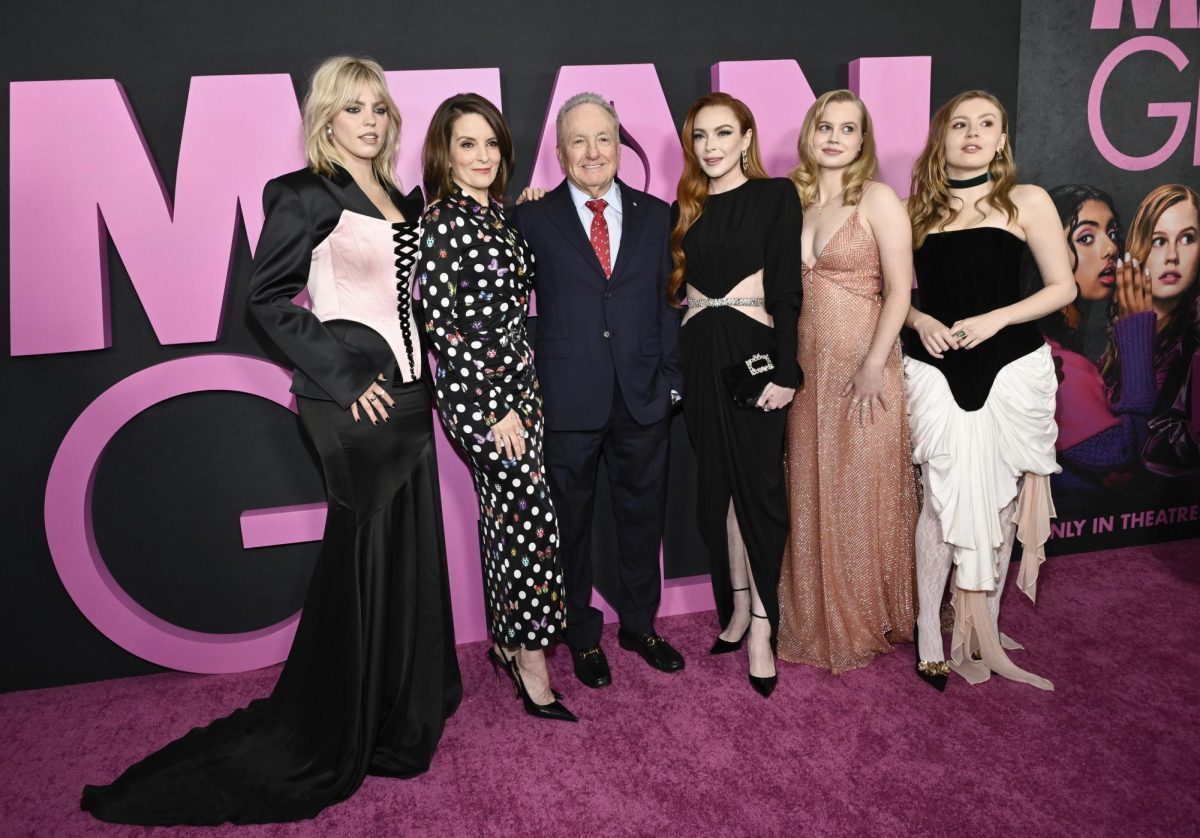After debuting 2004, “Mean Girls” has been loved for decades. The film delivers a powerful message of the importance of togetherness in women through the eyes of a “homeschooled jungle freak” who just moved to a new high school.
The 2017 musical adaptation revived the “Mean Girls” obsession, bringing new life to the 2000s classic and earning $124.2 million in its two years on Broadway.
At some point, however, film executives need to realize that “Mean Girls” has run its course. Its raging success is rare, but there are only so many ways to retell the same story. Tina Fey’s new movie-musical adaptation proves just that.
A Failed Attempt at Modernization
One thing that gives the original “Mean Girls” such timeless popularity is its lack of reference to time-specific events. The movie is set in a stereotypical early 2000s high school, and it definitely shows, whether it be through vernacular or costumes.
Establishing the time period is different from shoving newly popular items, ideas or apps in your face at all times. The 2024 rendition of “Mean Girls,” like so many other teen-targeted, low-budget films, failed miserably at appealing to Gen Z.
It’s an issue for me when TikTok plays a main-character role in a movie. Think 20 years ahead: the original “Mean Girls” will still be a classic because it can be enjoyed by people of all ages. Meanwhile, the social-media-ridden flick walks a fragile line.
Especially with some of its recent controversy, there’s no guarantee that TikTok will be around for much longer. Relying on an app to make your movie relevant is a cheap way to lose fans. In a world where pop culture evolves as quickly as it does, it’s near impossible to capture what’s cool when it’s still cool.
An easy fix is to steer clear of the Gen Z references – the last thing this movie needed was a Chris Olsen cameo just for the sake of relevance.
(Not) Music to My Ears
I didn’t go into this blind. To be completely fair with my review of the remake, I felt it necessary to watch the original movie and an insanely pixelated, pirated recording of the Broadway musical on YouTube beforehand.
I also listened to the original musical soundtrack side-by-side with the new movie’s. In short, Angourie Rice was the worst thing to happen to “Mean Girls” and Reneé Rapp was the best.
The biggest aspect of the musical that the new movie preserved was Rapp herself. The actress played as the replacement Regina George for seven months on Broadway, seeing “Mean Girls” to its closing show in 2020.
As the new-and-improved Regina, Rapp’s previous experience with the character most likely contributed to her phenomenal performance, specifically during “Someone Gets Hurt” and “World Burn.” Rapp perfectly preserved these iconic songs, while some of the scenery brought it to a whole new level.
What immediately brought that down, however, was Rice’s zombie-like rendition of Cady Heron’s songs. One particular failure was “Revenge Party,” featuring Auli’i Cravalho and Jaquel Spivey, two experienced professional singers. In some ways, I respect Rice. It takes special talent to ruin a song with multiple award-winning performers singing along with you.
The production team’s biggest mistake was casting a poor singer for the main-character role in a musical.
Can’t Buy Quality… Or Can You?
I genuinely believe that, with a larger budget, this movie really could’ve been much better.
It quickly becomes clear what the production team prioritized when it came to money. Certain musical scenes, like the Halloween party, obviously had a more gracious spending limit than the costumes department.
The Internet seemed to pay particular attention to this aspect of the flick. The Plastics, given their wealth and popularity, wouldn’t be seen in anything other than designer brands. If production was looking to modernize, they should’ve made sure that Regina was decked out in Dior.
If the costume choices weren’t a dead giveaway of a low budget, the product placement is hard to miss.
E.l.f Cosmetics made many appearances throughout the film, showing up on Regina’s vanity or laying label-side-up on Cady’s desk. To any viewer, this doesn’t present itself well. If a movie was expecting success, why would it rely on obvious brand deals to fund its production?
This isn’t even to mention the statement on character it makes. E.l.f is known for making cheap versions of popular high-end makeup products, and Regina would not own an entire collection of $3 lip glosses. It goes to show how far a production will go in the sake of making money. If preserving character isn’t important, then what is?
It’s not just e.l.f. that presents itself frequently. Brands like Glossier, Pure Leaf Tea, Apple and Samsung all made surprise cameos throughout.
I can get past a few brand deals here and there. What really caught me off guard, though, is in one of the final scenes, when Lindsay Lohan’s character bluntly reveals that the mathletes’ competition is sponsored by SeatGeek.
To be honest, all this in-your-face product placement is what told me the new “Mean Girls” was a flat-out bad movie. I can’t think of a time I’ve seen an Oscar winner show a character holding up a Samsung flip phone for a selfie. Keep it subtle or leave it out.


